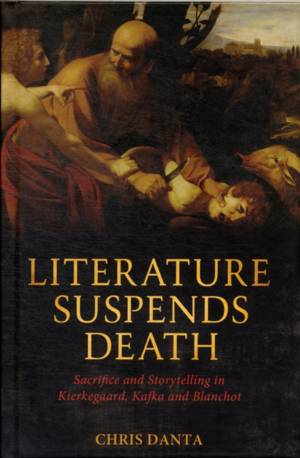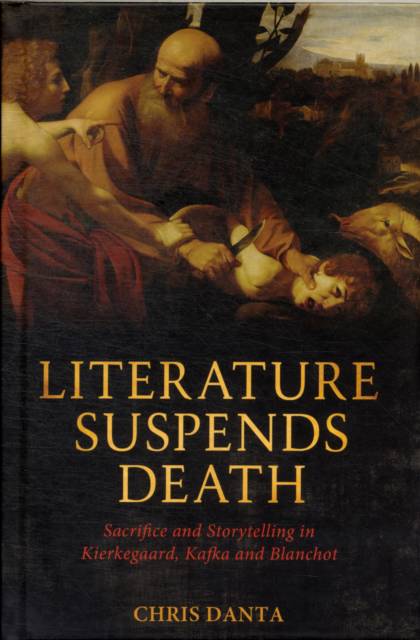
- Afhalen na 1 uur in een winkel met voorraad
- Gratis thuislevering in België vanaf € 30
- Ruim aanbod met 7 miljoen producten
- Afhalen na 1 uur in een winkel met voorraad
- Gratis thuislevering in België vanaf € 30
- Ruim aanbod met 7 miljoen producten
Zoeken
Omschrijving
This is the first book-length study of how three important European thinkers-Kierkegaard, Kafka and Blanchot-use the Binding of Isaac to illuminate the sacrificial situation of the literary writer. Danta shows that literature plays a vital and heretical role in these three writers' highly idiosyncratic accounts of the Akedah. His claim is twofold: firstly, that all three authors choose to respond to the Genesis narrative by manifesting literature; and, secondly, that each heretically endows literature-or fiction-with the power to suspend the sacrifice.Abraham's near-sacrifice of Isaac is traditionally read as the story of faith in action. But what does it mean to play the game of not-quite-belief with the story of religious faith? By examining the literary and heretical treatments of Isaac's sacrifice in the work of Kierkegaard, Kafka and Blanchot, this book develops an original account of literature as a form of sacrificial thinking. For each, writing acts, like God's sacrificial demand of Abraham, to suspend the writer's usual relation to his daily and earthly responsibilities.
Specificaties
Betrokkenen
- Auteur(s):
- Uitgeverij:
Inhoud
- Aantal bladzijden:
- 176
- Taal:
- Engels
Eigenschappen
- Productcode (EAN):
- 9781441139726
- Verschijningsdatum:
- 29/09/2011
- Uitvoering:
- Hardcover
- Formaat:
- Genaaid
- Afmetingen:
- 155 mm x 231 mm
- Gewicht:
- 385 g

Alleen bij Standaard Boekhandel
+ 593 punten op je klantenkaart van Standaard Boekhandel
Beoordelingen
We publiceren alleen reviews die voldoen aan de voorwaarden voor reviews. Bekijk onze voorwaarden voor reviews.











